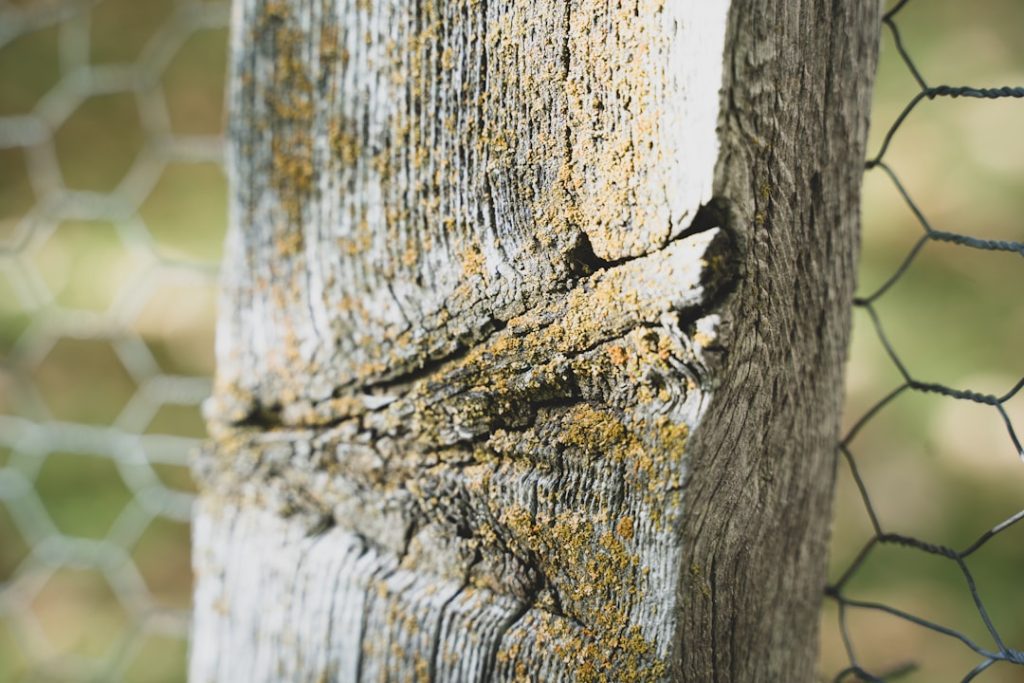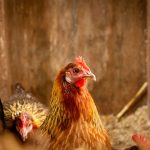Chickens are social creatures with a complex flock hierarchy. They possess innate behaviors such as foraging, dust bathing, and roosting. Understanding these behaviors is essential for protecting them from predators.
Chickens are naturally vigilant and will display signs of distress when they perceive danger. Observing changes in their behavior, such as reluctance to leave the coop or increased vocalization, can indicate the presence of a threat. Chickens instinctively seek shelter and roost at night for protection.
They are most vulnerable during sleep, making a secure coop crucial for their safety. Comprehending their natural behaviors allows for the creation of an environment that meets their needs and enhances their security. Providing a safe and comfortable habitat reduces stress levels in chickens, which in turn can improve their ability to stay alert and avoid predators.
Table of Contents
- 1 Implementing Physical Barriers
- 2 Utilizing Predator Deterrents
- 3 Providing Adequate Shelter
- 4 Supervising Free-Range Time
- 5 Using Companion Animals
- 6 Regularly Inspecting and Maintaining the Coop
- 7 FAQs
- 7.1 What are some ways to keep chickens from digging in predators?
- 7.2 Why is it important to keep chickens safe from predators?
- 7.3 What are some common predators that chickens may face?
- 7.4 How can I deter predators from approaching my chicken coop?
- 7.5 Are there any natural deterrents that can help keep predators away from chickens?
Key Takeaways
- Chickens have complex social structures and communication methods, and understanding their behavior is crucial for their well-being.
- Physical barriers such as fences and netting can help keep predators away from the chicken coop and free-range areas.
- Predator deterrents like motion-activated lights and sound devices can help scare off potential threats to the chickens.
- Adequate shelter in the form of a secure coop with nesting boxes and roosting bars is essential for protecting chickens from predators and the elements.
- Supervising free-range time allows for the chickens to roam and forage while also keeping an eye out for potential dangers.
- Companion animals like dogs or guinea fowl can help protect chickens from predators by alerting them and even fending off threats.
- Regularly inspecting and maintaining the coop for any signs of wear, damage, or potential entry points for predators is important for keeping the chickens safe.
Implementing Physical Barriers
Installing Fencing and Underground Barriers
One of the most effective ways to protect your chickens from predators is by implementing physical barriers around their coop and run. This can include installing fencing around the perimeter of the coop and run, as well as burying the fencing underground to prevent predators from digging underneath. Additionally, adding a roof or cover to the run can help protect your chickens from aerial predators such as hawks and owls.
Maintenance and Inspection
It’s important to regularly inspect the fencing and make any necessary repairs to ensure that it remains secure and predator-proof.
Using Hardware Cloth for Added Security
Another physical barrier that can be effective in deterring predators is using hardware cloth instead of chicken wire. Hardware cloth is much stronger and more durable than chicken wire, making it more difficult for predators to break through. It’s important to use hardware cloth with small enough gaps to prevent predators from reaching through and grabbing your chickens. By implementing these physical barriers, you can create a secure environment for your chickens and reduce the risk of predator attacks.
Utilizing Predator Deterrents

In addition to physical barriers, there are also various predator deterrents that can help protect your chickens from potential threats. One effective deterrent is using motion-activated lights or sound devices near the coop and run. These can startle predators and deter them from approaching the area.
Another option is using predator decoys such as fake owls or snakes, which can trick predators into thinking that there is a larger predator in the area and discourage them from coming too close. You can also consider using natural deterrents such as planting thorny bushes or shrubs around the perimeter of the coop and run. These can create a barrier that makes it more difficult for predators to access your chickens.
Additionally, using strong-smelling herbs or plants such as lavender or mint can help mask the scent of your chickens and make it harder for predators to locate them. By utilizing these predator deterrents, you can create an environment that is less attractive to potential threats and reduce the risk of predator attacks.
Providing Adequate Shelter
Providing your chickens with adequate shelter is essential for protecting them from predators. A secure coop that is well-built and predator-proof is crucial for keeping your chickens safe at night when they are most vulnerable. The coop should have sturdy walls and a strong roof to prevent predators from breaking in, as well as secure doors that can be locked at night.
It’s important to regularly inspect the coop for any signs of wear or damage and make any necessary repairs to ensure that it remains secure. In addition to the coop, providing your chickens with a secure run or outdoor enclosure can also help protect them from predators during the day. The run should be covered with a roof or netting to prevent aerial predators from swooping in, and the fencing should be secure and buried underground to prevent predators from digging underneath.
By providing your chickens with adequate shelter, you can create a safe and secure environment that reduces the risk of predator attacks.
Supervising Free-Range Time
Allowing your chickens to free-range can provide them with exercise and access to natural foraging opportunities, but it also exposes them to potential predator threats. It’s important to supervise your chickens during free-range time to ensure their safety. By keeping an eye on them, you can quickly intervene if you notice any signs of distress or if you spot a potential predator in the area.
You can also consider using temporary fencing or electric netting to create a safe free-range area for your chickens. This can help keep them contained and protected while still allowing them to enjoy some freedom outside of the coop and run. Additionally, providing hiding spots such as bushes or shrubs in the free-range area can give your chickens a place to seek refuge if they sense danger.
By supervising your chickens during free-range time and taking steps to create a safe environment, you can reduce the risk of predator attacks.
Using Companion Animals

Using Companion Animals to Protect Your Flock
Benefits of Dogs as Guardians
Introducing dogs into your flock can be an effective way to protect your chickens from predators. As natural protectors, dogs can help deter potential threats by patrolling the area around the coop and run. They can also alert you to the presence of predators and intervene if necessary.
Guinea Fowl: Loud and Fearless Guardians
Guinea fowl are also known for their loud alarm calls and aggressive behavior towards predators, making them effective guardians for your flock. Their loud calls can alert you to potential threats, and their fearless nature can help chase predators away.
Introducing Companion Animals to Your Flock
When introducing companion animals to your flock, it’s essential to do so carefully and monitor their interactions with the chickens to ensure they get along well. Providing companion animals with proper training and socialization can also help them become effective protectors for your chickens.
By using companion animals, you can add an extra layer of protection for your flock and reduce the risk of predator attacks.
Regularly Inspecting and Maintaining the Coop
Regularly inspecting and maintaining the coop is essential for protecting your chickens from predators. It’s important to check for any signs of wear or damage to the coop, such as holes in the walls or roof, loose fencing, or gaps in the doors. Making any necessary repairs promptly can help prevent predators from gaining access to your chickens.
Additionally, keeping the area around the coop clean and free of debris can help reduce hiding spots for potential predators. Removing any overgrown vegetation or clutter around the coop can make it easier to spot potential threats and reduce the risk of predator attacks. By regularly inspecting and maintaining the coop, you can create a secure environment for your chickens and reduce the likelihood of predator encounters.
In conclusion, protecting your chickens from predators requires a combination of understanding their behavior, implementing physical barriers, utilizing predator deterrents, providing adequate shelter, supervising free-range time, using companion animals, and regularly inspecting and maintaining the coop. By taking these steps, you can create a safe and secure environment for your flock and reduce the risk of predator attacks.
If you’re looking for ways to keep chickens safe from predators, you may also be interested in learning about the mating season for turkeys. Understanding the behavior of turkeys during mating season can help you better protect your flock from potential threats. Check out this article on mating season for turkeys to learn more about this important aspect of turkey breeding and care.
FAQs
What are some ways to keep chickens from digging in predators?
Some ways to keep chickens from digging in predators include using hardware cloth to create a secure coop, burying the hardware cloth around the perimeter of the coop, and using predator-proof fencing.
Why is it important to keep chickens safe from predators?
It is important to keep chickens safe from predators to ensure their well-being and to protect them from potential harm or loss.
What are some common predators that chickens may face?
Common predators that chickens may face include foxes, raccoons, coyotes, dogs, and birds of prey such as hawks and owls.
How can I deter predators from approaching my chicken coop?
You can deter predators from approaching your chicken coop by using motion-activated lights, sound deterrents, and keeping the area around the coop free of potential hiding spots for predators.
Are there any natural deterrents that can help keep predators away from chickens?
Some natural deterrents that can help keep predators away from chickens include using strong-smelling herbs and plants, such as lavender and mint, around the coop, and keeping a guard animal, such as a dog or a goose, with the chickens.

Meet Walter, the feathered-friend fanatic of Florida! Nestled in the sunshine state, Walter struts through life with his feathered companions, clucking his way to happiness. With a coop that’s fancier than a five-star hotel, he’s the Don Juan of the chicken world. When he’s not teaching his hens to do the cha-cha, you’ll find him in a heated debate with his prized rooster, Sir Clucks-a-Lot. Walter’s poultry passion is no yolk; he’s the sunny-side-up guy you never knew you needed in your flock of friends!
Meet Walter, the feathered-friend fanatic of Florida! Nestled in the sunshine state, Walter struts through life with his feathered companions, clucking his way to happiness. With a coop that’s fancier than a five-star hotel, he’s the Don Juan of the chicken world. When he’s not teaching his hens to do the cha-cha, you’ll find him in a heated debate with his prized rooster, Sir Clucks-a-Lot. Walter’s poultry passion is no yolk; he’s the sunny-side-up guy you never knew you needed in your flock of friends!







